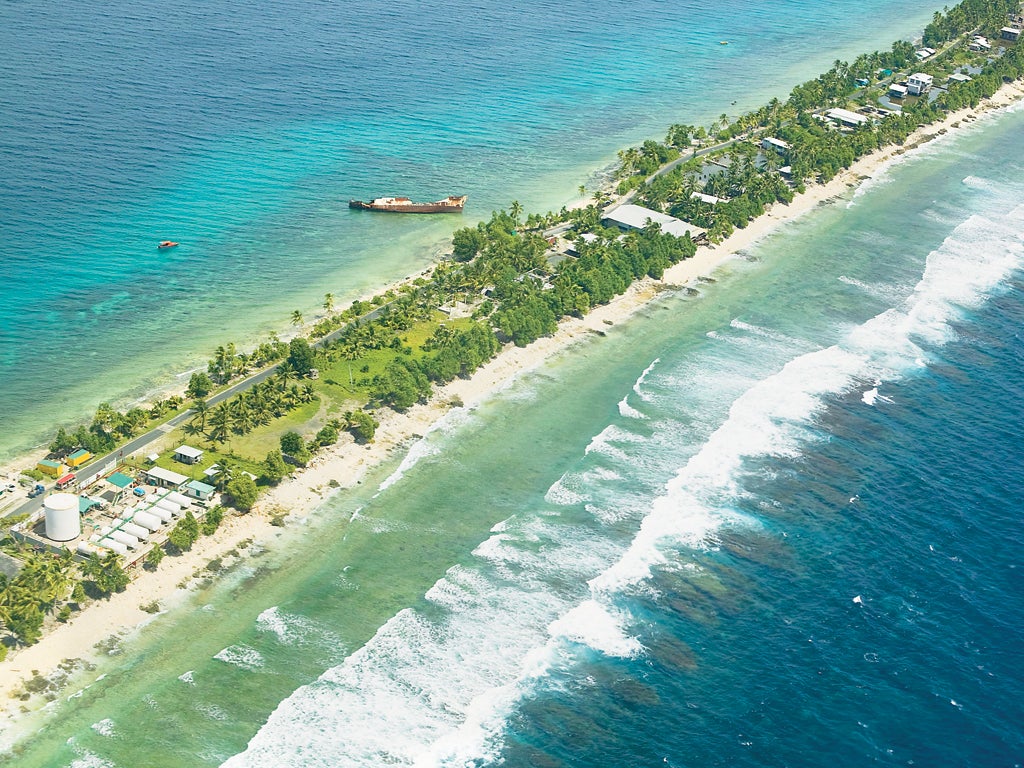Water, water everywhere... but not for Tuvalu

A critical shortage of fresh water has forced the tiny Pacific island of Tuvalu to declare a state of emergency.
A former British protectorate which used to be part of the Gilbert and Ellice Islands, Tuvalu is one of the most isolated communities in the world. The main island covers just 10 square miles and has no natural water supplies apart from rain. An unusually dry spell has left the islanders almost out of supplies.
As the local authorities admitted yesterday that they were down to two days' water in some parts of the country, a New Zealand air force transport plane flew in with fresh supplies and desalination units. The New Zealand Red Cross is also contributing aid.
Tuvalu, the capital of which, Funafuti, has a population of 4,500, is roughly halfway between Australia and Hawaii and only 16ft (five metres) above sea level at its highest point. Last week the Red Cross issued a report blaming the La Niña weather pattern.
In recent years, the islands have suffered rising ocean levels which have eroded much of the coastline and added to the salination of the soil. Last month Tuvalu Prime Minister Willy Telavi warned the UN that global warming threatened his country's very existence.
When it does rain, the population of about 11,000 collect the water from their roofs and store it in above-ground tanks. When storage systems run low, as they have done in recent months, islanders tap emergency supplies from government and community-owned cisterns.
But with even these at risk of drying up, Tuvaluans face a threat to their survival. With no natural streams, rivers or underground water, the nation's subsistence farming traditions are also at risk. The arrival of international aid is unlikely to provide a long-term solution to the islands' problems.
Join our commenting forum
Join thought-provoking conversations, follow other Independent readers and see their replies
Comments